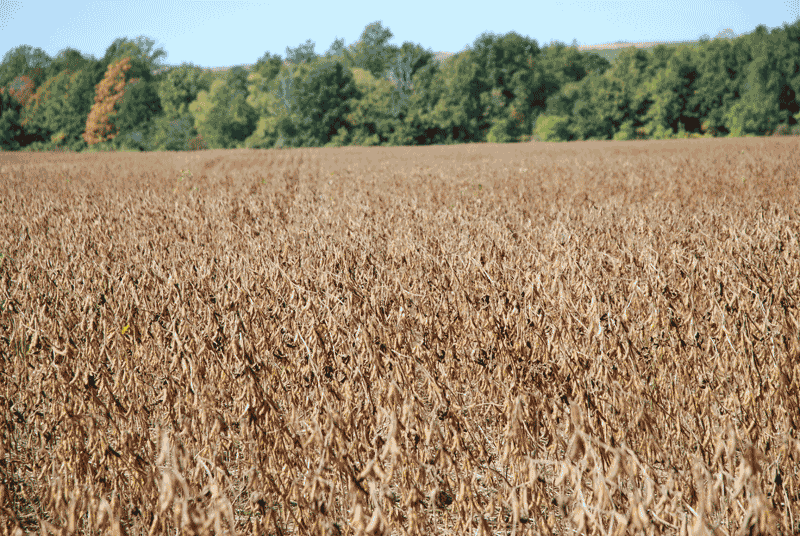New regulations for new technology
AN IGTC UPDATE
GENETIC MODIFICATION HAS come a long way in solving problems for the agri-food industry, but despite its many benefits, it can also pose trade barriers when importing and exporting agricultural commodities.

Canada’s status as a major exporter of hard wheat, canola, durum wheat and lentils relies heavily on meeting the standards of the importing countries. Other key exports include corn and soybeans, which are often genetically modified. Differences in regulations regarding the use of GM crops and the need to meet trade regulations between countries resulted in the formation of the International Grain Trade Coalition (IGTC).
BACKGROUND
The IGTC is made up of 22 national and international non-profit trade associations and councils and was developed in 2001 to minimize adverse trade impacts from the Cartegena Protocol on Biosafety. The Cartegena Protocol was developed to protect biodiversity from potential risks from living modified organisms (LMOs).
The 166 countries that have ratified the agreement require a commercial invoice on every LMO shipment entering the country, noting the presence of the LMOs; if its identity is known, such as through an identity preservation system, the document states that the shipment contains the specific LMO with its description. If the identity of the LMO is unknown, documentation must state the shipment may contain one or more LMOs, and list those potentially present.
According to Dennis Stephens, Secretary for the IGTC, the Protocol’s burdensome regulations are making the development of low level presence (LLP) policies difficult, and there is interest internationally to remove the restrictions and replace with new LLP policies.
“We need a commercially acceptable decision for this and other regulatory issues,” says Stephens. “The IGTC recommends the Food and Agricultural Organization of the United Nations (FAO) host a Low Level Presence Workshop for developing countries to focus on LLP questions and global food security.”
LLP refers to, according to Stephens, “the unavoidable and unintentional low level presence of an event produced through modern biotechnology that has undergone a full risk assessment based on CODEX plant guidelines and has been authorized at 100 percent consumption in one or more countries but not in the country of import”.
CURRENT CONCERNS
Members of the International Grain Trade Coalition, including Canada, each have their own issues and concerns with restrictions on international trade.
The North American Export Grain Association (NAEGA) voiced concerns over the government’s ability to provide and meet needs for trade to take place, while CAPECO, the Paraguayan Chamber of Cereals and Oilseeds Exporters, views logistics as a problem from export in Argentina, Brazil, Paraguay, and Uruguay. “Production is increasing,” says Sonia Tomassone, Foreign Trade Advisor, “and logistics need improvement.”
COCERAL, the European association representing the trading of cereals, rice, feedstuffs, oilseeds, olive oil, oils and fats and agrosupplies, said that the European Union has made very little progress on its stance on biotechnology. Currently, 71 biotech events are being assessed, undergoing scientific and political scrutiny. Extensive delays are taking place, putting the EU at a significant competitive disadvantage to other countries says Gloria Gabbelini, Senior Policy Advisor.
“Biofuels, especially canola-based, are up for discussion about changing legislation,” says Gabbelini. “The proposed legislation will disadvantage canola in the EU’s biofuel market”
The Grain and Feed Trade Association (GAFTA) represents importers and exporters of grain, feed, pulses and rice and provides the necessary documentation to ensure they follow trade regulations. Co-operation between importers and exporters is very important, says Director General Pamela Kirby-Johnson, and it is important for the importer to comply with regulations in place at the time of import.
“Asynchronous approval and time problems are issues,” says Stephens. “When events aren’t authorized at the same time, such as when the exporter approves trade but the importer has not, it becomes a significant risk to ship. New LLP policies need to be scientifically based, consistent, safe for food, feed and the environment, have a viable supply, and be consistent with reality.”
New GM policies must reflect differences in risk, adds Stephens. He says there is a difference between products that have been risk-assessed and determined to be safe at 100% consumption and those that have never undergone a risk assessment any place; and these differences should be acknowledged.
The IGTC supports the International Plant Protection Convention’s Commission on Phytosanitary Measures’ move to exclude genetically modified organisms, climate change, and food safety from its proposed international phytosanitary grain standard but urges that traceability be excluded from the standard’s scope. Future challenges of the IGTC include addressing regulation policies developed through international government bodies. With strong anticipated global growth in 2014, an increase in demand for soybeans in Argentina, Brazil, and China, and a huge increase in corn production worldwide, the need for trade regulations that work with both exporters and importers is crucial. •























